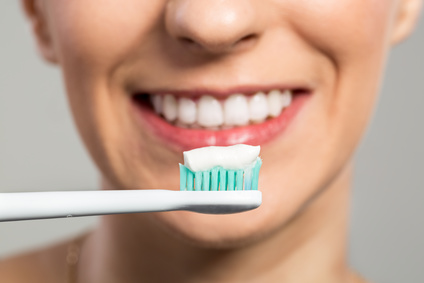How effective are products for whitening your teeth yours elf?
elf?
Everyone would like to have beautiful white teeth so that when they smile, they can do so fully and confidently. Yes, most people don’t have naturally white teeth and look for ways that they can get them whiter. However, it seems after just a short search, they end up discouraged. The treatment and methods they learn about initially are either too expensive, cumbersome or even sound risky.
You see, upon an initial search, you’ll be inundated with products like whitening strips. But, as you’ll soon read, they have a downside. This leaves you wondering if there is a way to self-whiten your teeth safely, effectively without costs, hassle or risk to your dental and overall health.
Before you read on to discover the “magic solution” to white teeth, you need to know that wise, proper, regular oral hygiene practices are your best route to white – and healthy – teeth.
Here are the commonly pursued teeth-whitening methods and their effects and downsides.
Highly acidic fruits and juices Have you ever heard of using peels and juices of lemons, or oranges for whitening teeth? Or, what about using apple cider vinegar? Many people have and many have tried these things. In fact, some dentists praise apple cider vinegar for its effectiveness on whitening your teeth because it does remove accumulated plaque. But, it’s very acidic so if you try this method, you must brush your teeth very diligently and then rinse with water afterward.
Note: The acid is known to wear down the enamel in teeth so the ADA (American Dental Association) is opposed to apple cider vinegar and it’s universally accepted that lemon and orange peel and juice are harmful to your teeth so your’ advised to not even pursue them, teeth-whitening agents.
Strips with hydrogen peroxide Also referred to as whitening strips, these products are prevalent on the shelves of many stores. However, if you change the name of these from “whitening strips” to hydrogen peroxide strips, do they have the same appeal?
Hopefully not because the hydrogen peroxide ingredient, which is most active in these strips, can be damaging to your dentin tissue which lies beneath the protective enamel of your teeth and is rich in protein.
Furthermore, a research team discovered that hydrogen peroxide concentrations at the level that are in whitening strips can eradicate the collagen protein of dentin. While it was not concluded if the damage is permanent, the damage does occur.
These are especially harmful if they aren’t used properly. If you put on too may too often your tooth enamel can be damaged. Also, using whitening strips can cause your teeth to become sensitive. But the bottom line is that dentist largely agree these are safe and effective – in general – as long you carefully follow the directions.
Natural abrasives Other natural products touted commonly are items like baking soda and activated charcoal. Some dentists have found these to be relatively effective in whitening your teeth. But they are abrasive so they should only be used once or twice (at most) per week. Otherwise, your tooth enamel can become eroded and the dentin is at risk of exposure.
For more information regarding anything related to your oral health, give Dr. Apsey of Smile Brightly Dental a call today! We are located in Warren, MI and we can be reached at 586-573-7700!
